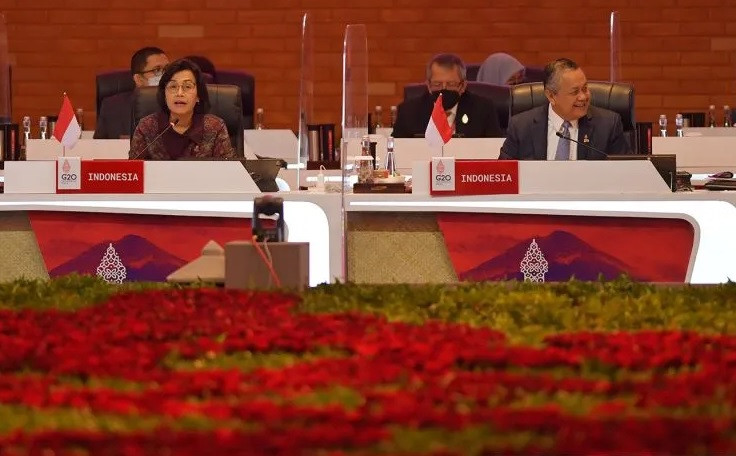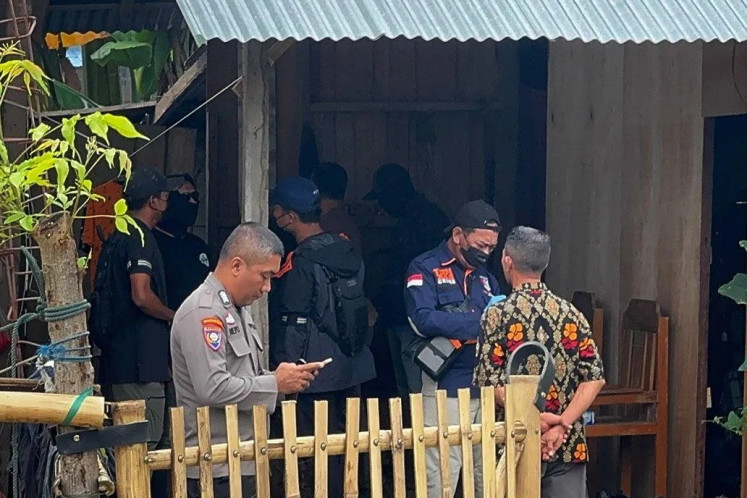Popular Reads
Top Results
Can't find what you're looking for?
View all search resultsPopular Reads
Top Results
Can't find what you're looking for?
View all search resultsDon’t politicize finance
The involvement of lawmakers and politicians in the OJK, the LPS and BI will only allow political and ideological motives to guide decision-making.
Change text size
Gift Premium Articles
to Anyone
I
t is safe to say the government has made better decisions that have kept the country’s economy afloat amid a war and global inflation this year. Despite a poor record of external shock-handling in previous financial crises, Indonesia has remained among the few countries with strong economic resilience.
The rupiah, which previously ranked among the “fragile five” by a Morgan Stanley analyst during the 2013 taper tantrum, is now on the shortlist of currencies, along with the Singaporean dollar, that have depreciated the least against the United States dollar.
Though declining, Indonesia’s trade surplus persists and the state budget remains in the green as the government has chosen to cut subsidies and increase fuel prices.
Therefore, it is disheartening to discover that the political elite is demanding a greater monetary and financial role, while the government is keeping its hands steady to protect the economy from a recession.
Such political aspirations have been translated into provisions in the latest draft of the financial sector development and strengthening (PPSK) omnibus bill, which will allow lawmakers to select all commissioners of the Financial Services Authority (OJK) and Deposit Insurance Corporation (LPS). Currently the authority goes to ad-hoc teams consisting of senior government officials who are appointed by the president and the governor of Bank Indonesia (BI).
The bill also lifts the ban on politicians running for LPS commissioner jobs and gives them the right to vie for seats on the central bank’s board of governors, if not for the BI governor post.
We are already familiar with a high degree of pragmatism among Indonesian politicians—to the extent of opportunism. Political party members who serve at the House of Representatives or occupy government posts are not bound by ideology but short-term goals.
There was a precedent for slow deliberation of a bill because it did not serve their political interests. Law No. 12/2022 on sexual violence crimes, for example, was enacted only in April after 10 years of deliberation. In 2016, lawmakers endorsed the tax amnesty bill into law after a protracted tug of war with the government.
As political rivalries heighten ahead of the elections in 2024, giving too much authority to politicians to decide who is manning these financial and monetary institutions will only spell trouble for the economy. If passed, it will increase uncertainty on top of the projected global recession next year.
The involvement of lawmakers and politicians in the OJK, the LPS and BI will only allow political and ideological motives to guide decision-making in these key institutions, preventing them from producing evidence-based policies.
If the government aims for financial sector reform in the PPSK bill, it should focus on fixing or streamlining the current system that facilitates the strengthening of the economy and financial market in the country.
Indonesia is at a critical juncture today. The government and lawmakers may sustain their old transactional politics in the legislative process of the bill to secure greater authority. But they also have to realize that such a quid pro quo mechanism to satisfy their interests can deprive the country of the rare golden opportunity of a strong recovery.











